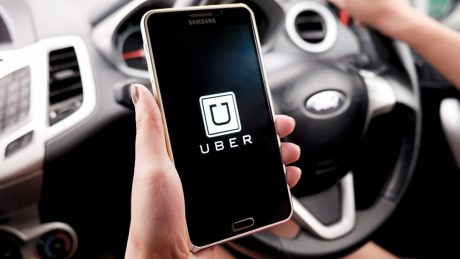Uber has lost its long running battle to defend its claim that its drivers are self-employed. The case has been ongoing since 2016 when two drivers brought a case in the employment tribunal claiming they deserved rights as employees.
The decision was appealed by Uber at each stage, until the Supreme Court had the final say on Friday 19 February 2021. Joseph Lappin and Charlie Thompson review the decision and look at what this means for the wider gig economy.
The Supreme Court decision centred around four key points. Lord Leggett, when handing down the judgment said he considered drivers to be employed because:
- Uber set the fare, meaning they dictated how much drivers could earn.
- The drivers had no say in the contract terms, as these were also set by Uber.
- Requests for rides is constrained by Uber, meaning Uber could penalise drivers if they rejected rides.
- Uber monitors a driver’s service through a rating system, and had the capacity to terminate a driver if the service did not improve after repeated warnings.
Charlie Thompson, Partner in the Employment department commented:
“Many will rush to affix profound importance to this decision, but in my view this may be misplaced.”
“Clearly there is symbolic importance to a case where one of the figureheads of the gig economy loses a case, which goes to the heart of its business model, four times in a row. At each stage Uber claimed that its business model merely provided a platform to self-employed drivers, and each time the court dismissed this as artifice.”
How significant is this decision outside of Uber?
Charlie commented further:
“Other gig economy business and workers will take notice, and we may see a spike in claims, but because every employment case is decided on its own facts, we will still see arguments that a business should not be treated like Uber.
“Also, the rights won by the drivers are significant, but in practice are limited to minimum wage and paid holiday. They have not won the full protection of employment rights, including the right not to be unfairly dismissed.
“Without diminishing the significance of the outcome today, gig economy work is still generally poorly paid and precarious. Today’s decision does not give individuals working in gig economy businesses basic protections such as a guaranteed amount of work, the right to paid sick pay, the right to take maternity leave and return to the same role or the right not to be dismissed without the company having a fair reason and following a fair process. A gig economy business can still, in practice “hire and fire” as it chooses.
“Political events have also overtaken the legal process, and may continue to. This claim was first issued before the EU referendum, and since the UK’s law on holiday pay is derived from European law, we may in future see a change to the holiday rights that the Uber drivers have won. All eyes will be on when the Government’s employment bill eventually reaches parliament.”
In the interview
Joseph Lappin spoke to Sky News about the topic on the day of the judgment. He noted that Uber had lost at every stage of the process, starting from the Employment Tribunal in 2016. Joseph noted that the case would now revert to the Employment Tribunal where a judge would calculate a sum owed to claimants in this case, to then be carried across to all of Uber’s employees.
Turning to the gig economy as a whole, Joseph commented that “each case will turn on its facts, and so employers will put forward reasons as to why their business model is different to Uber’s and why the individuals working for them are genuinely self-employed”. He predicted that companies operating in the gig economy may pass increased costs resulting from this judgment on to consumers, or in some cases cease trading entirely.
In the press
Charlie Thompson was also quoted in The Financial Times on 19 February 2021 saying ‘while the Uber case was symbolically important, other companies are likely to contest similar claims by pointing to the fact that they exert less control over their staff or allow them to swap work with someone else.’
He added that the decision did not offer a guaranteed amount of work, the right to receive sick pay, or the right not to be dismissed without the company having a fair reason and following a fair process. A gig economy business can still, in practice, “hire and fire” as it chooses, he said.
Read the full article here, subscription required
You can find further information regarding our expertise, experience and team on our Employment page.
If you require assistance from our team, please contact us or alternatively request a call back from one of our lawyers by submitting this form.
Subscribe – In order to receive our news straight to your inbox, subscribe here. Our newsletters are sent no more than once a month.






